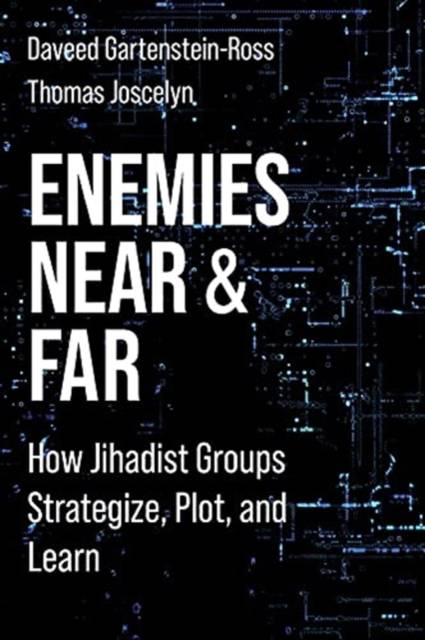
En raison d'une grêve chez bpost, votre commande pourrait être retardée. Vous avez besoin d’un livre rapidement ? Nos magasins vous accueillent à bras ouverts !
- Retrait gratuit dans votre magasin Club
- 7.000.000 titres dans notre catalogue
- Payer en toute sécurité
- Toujours un magasin près de chez vous
En raison de la grêve chez bpost, votre commande pourrait être retardée. Vous avez besoin d’un livre rapidement ? Nos magasins vous accueillent à bras ouverts !
- Retrait gratuit dans votre magasin Club
- 7.000.0000 titres dans notre catalogue
- Payer en toute sécurité
- Toujours un magasin près de chez vous
Enemies Near and Far
How Jihadist Groups Strategize, Plot, and Learn
Daveed Gartenstein-Ross, Thomas Joscelyn
50,95 €
+ 101 points
Format
Description
Although the United States has prioritized its fight against militant groups for two decades, the transnational jihadist movement has proved surprisingly resilient and adaptable. Many analysts and practitioners have underestimated these militant organizations, viewing them as unsophisticated or unchanging despite the ongoing evolution of their tactics and strategies.
In Enemies Near and Far, two internationally recognized experts use newly available documents from al-Qaeda and ISIS to explain how jihadist groups think, grow, and adapt. Daveed Gartenstein-Ross and Thomas Joscelyn recast militant groups as learning organizations, detailing their embrace of strategic, tactical, and technological innovation. Drawing on theories of organizational learning, they provide a sweeping account of these groups' experimentation over time. Gartenstein-Ross and Joscelyn shed light on militant groups' most effective strategic and tactical moves, including attacks targeting aircraft and the use of the internet to inspire and direct lone attackers, and they examine jihadists' ability to shift their strategy based on political context. While militant groups' initial efforts to upgrade their capabilities often fail, these attempts should generally be understood not as failures but as experiments in service of a learning process--a process that continues until these groups achieve a breakthrough. Providing unprecedented historical and strategic perspective on how jihadist groups learn and evolve, Enemies Near and Far also explores how to anticipate future threats, analyzing how militants are likely to deploy a range of emerging technologies.Spécifications
Parties prenantes
- Auteur(s) :
- Editeur:
Contenu
- Nombre de pages :
- 384
- Langue:
- Anglais
- Collection :
Caractéristiques
- EAN:
- 9780231195256
- Date de parution :
- 05-07-22
- Format:
- Livre broché
- Format numérique:
- Trade paperback (VS)
- Dimensions :
- 150 mm x 226 mm
- Poids :
- 680 g

Les avis
Nous publions uniquement les avis qui respectent les conditions requises. Consultez nos conditions pour les avis.






